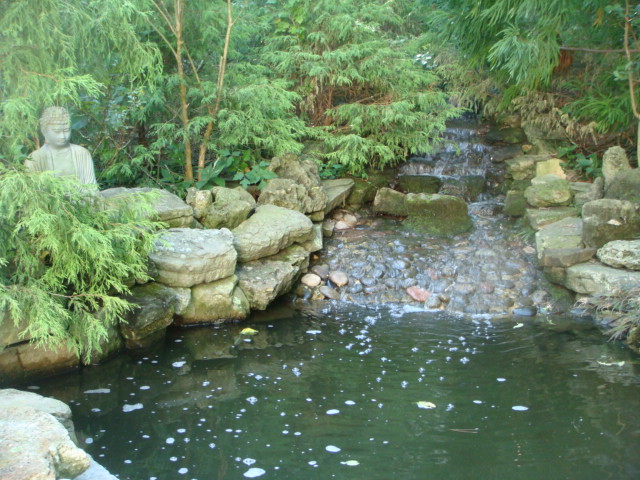Good evening!
Today is the autumnal equinox, with equal day and night, neither hot nor chilly. Here we have just perfect climate, with cool atmosphere and clear, calm sky, without clouds or winds, with the beautiful, bright moon.
In Japan we call it higan (彼岸), the other shore, which means nir-vâna (ni-vâta), windless state of karma, or uncreated state (a-sankhata, a-sanskrita: un-made), unconditioned peace.
We need to cross over from this shore (self) to the other shore (dharma, two islands: attan, âtman and dharma) beyond the rough sea of torrents and billows, ups and downs, of strife and sufferings.
The Buddha saw the thick layer (or storage: laya, like snow-storage: hima-âlaya) of karma in us and in the world. So, he was reluctant to come out, to change our karmas and the karmic world. He did come out, however, to save the world from suffering.
He told us that all living beings are karma-machines, karma-heirs, karma-relatives, and he showed us the “come and see” (ehi-passika) way – good in the beginning, the middle and the end, for all – sitting still and serene, stilling karmas. He said that religion is cultivation.
Dogen was not sure why we must practice, when we are said to be buddhas from the beginning. He later said, “Even though this dharma is abundantly endowed, without cultivation, it is not developed; without witnessing, it is not attained.” No one can taste eternity without practice.
We must constantly practice, because karma is constantly there, like raindrops piercing through a rock or a water jet cutting a metal plate. We need constant and concentrated cultivation to penetrate and break through stresses and sufferings.
We all need to cultivate the four right applications (padhâna, pradhâna, applying ourselves to stopping bad karmas, decreasing them, starting good karmas, and increasing those) to attain equanimity and insight, to solve our problems, and to stop our sufferings.
9/21/11

